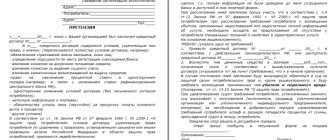Powers and duties of bailiffs
The main duty of the FSSP representatives is to take all feasible measures to comply with the court order. For these purposes, a person searches for property and interacts with employers and banks. The parties to the process have the right to get acquainted with the case materials at any stage of the proceedings; the bailiff is obliged to provide information, allow photocopies and extracts from sheets to be made.
Another responsibility is to ensure order during the trial (falls within the competence of a separate unit). Employees provide information, give consultations, accept complaints, statements, petitions, provide responses to requests from the plaintiff or defendant within a certain time frame, suspend or terminate proceedings.
Stages of debt collection by bailiffs
The application of coercive measures is divided into several stages. Each of them is regulated by federal law. At any stage, the debtor may pay the obligations in full to complete the proceedings. Let's take a closer look at the procedure for debt collection by bailiffs.
Notice to Parties
After the writ of execution is served, the claimant can only wait for the process to begin. Within 3 days after receiving the document, the bailiff issues a resolution stating:
- Details of the parties, their place of registration.
- Total amount of debt.
- Number of the writ of execution, court decision.
- The period during which a person can voluntarily pay off obligations.
- Possible coercive measures that the employee has the right to apply.
- Signature, date.
Photocopies of the resolution are sent to all participants in the procedure by registered mail by regular mail. Additionally, the bailiff can call the debtor and notify him about the start of the process, but in practice this rarely happens.
If the debtor has not received the document, he has the right to file a complaint against the FSSP representative about a violation of the process of applying compulsory actions.
During the procedure, the official has the right to call the defendant at set hours to notify him of the need to pay the debt or obtain the necessary information. In this case, it is not recommended to ignore such calls: always maintain feedback with the government representative so as not to aggravate the situation.
How to collect a debt without a bailiff?
The law establishes the ability to independently collect debt in a very short time. This does not require any special knowledge or skills. In this article I will talk about the most common methods of quickly collecting funds, bypassing the weak link in the form of bailiffs.
Options available to citizens for collecting funds from a debtor:
- Direct debiting of funds.
- Arbitration court.
- Providing a writ of execution to the employer.
Direct debiting of funds
There is such a thing as direct debiting of funds from the debtor’s account. This possibility is enshrined in paragraph 2 of Art. 854 of the Civil Code of the Russian Federation, which states: writing off funds on an account without the client’s order is permitted by a court decision, as well as in cases established by law or provided for by an agreement between the bank and the client.
Algorithm of actions:
1) To use direct debiting of funds, you first need to know whether the debtor has a bank account. 2) Then you need to contact the bank with an application to collect funds through direct debit. 3) The application must be accompanied by a writ of execution issued on the basis of a court decision that has entered into legal force. In addition, the application must refer to the current regulations establishing the possibility of collecting funds by direct debit:
- Art. 854 Civil Code;
- Regulations on non-cash payments in the Russian Federation.
Arbitration court
Few ordinary citizens have heard of such a concept as an arbitration court. Roughly speaking, this is a commercial court, which, according to the law, although not part of the judicial system, its decisions have legal force.
As a general rule, on average, the consideration of a claim in an arbitration court takes two to three weeks from the date of application.
Arbitration courts do not have higher bodies for appeal, therefore the decision of such a court comes into legal force on the day of its adoption.
But to obtain a writ of execution, you will still have to go to state courts, where the procedure for making a decision is very simple and consists in the correct execution of the decision and protocol. An appeal to an arbitration court is possible only if the loan, credit, supply or service agreement contains an arbitration clause.
Providing a writ of execution to the employer
Recent amendments to the law allow you to contact the debtor’s employer directly rather than to bailiffs. However, this can only be used if the amount of debt does not exceed 100 thousand rubles.
The writ of execution is submitted to the accounting department, which is obliged to accept and make monthly payments to the creditor to the account specified by him. If the accounting department or the debtor interfere with collection, the creditor has the right to transfer the writ of execution directly to the bailiff service.
To summarize, let’s say: you shouldn’t delay debt collection and waste time on standard and very slow collection procedures.
Payment order
The federal legislation on enforcement proceedings establishes that creditors' claims are satisfied in a certain order. There are several queues:
- Debts for alimony for minor children, disabled relatives, compensation for harm caused to health.
- Settlements under employment agreements, payment of wages, bonuses to employees, remuneration for intellectual activity.
- Payment of taxes and other obligations to the state budget.
- Transfer of money under other writs of execution, satisfaction of claims of other creditors.
How long can bailiffs carry out collections?
The legislation establishes deadlines for carrying out enforcement actions. As a general rule, all instructions from the document must be fulfilled within 2 months from the date of the decision to begin the procedure.
If the documentation indicates that the requirements must be met immediately, collection is carried out on the first working day after the sheet is received by the FSSP unit. If the instructions include taking measures to secure the claim, they are also implemented on the day the official document is received or, if this is not possible, the next day.
At the same time, during this period the time of forced suspension of proceedings, deferment or installment plan for the implementation of instructions under the writ of execution is not counted.
General procedure for debt collection by bailiffs
- From the time of receipt of the writ of execution, the bailiff has 3 (three) days to open enforcement proceedings. The resolution on its opening is sent by him to the claimant and the debtor.
- The bailiff provides 5 (five days) or another period established by the court for the voluntary closure of debt obligations, if such an individual entrepreneur is opened for the first time.
- The next stage of the SPI's actions is to search for the debtor's funds. For this purpose, requests are sent to various banking organizations and at the place of his work. Accounts are subject to temporary arrest to block possible movement of funds until the closure of enforcement proceedings.
- If funds are found, the debt is withdrawn directly from the debtor's bank account or income. Otherwise, the bailiff continues his work and establishes whether the debtor has real estate and movable property.
- As soon as the debtor's property is identified, it is seized, and it is subject to assessment and subsequent sale. Moreover, if the value of the property during the sale exceeds the amount of the debt and the enforcement fee, the difference in value is returned to the debtor.
- In situations where the amount of debt exceeds 10 (ten) thousand rubles, the bailiff may impose a ban on the debtor from traveling abroad.
- After collecting the debt, the bailiff also collects an enforcement fee from the debtor (if the debt has not been repaid within the voluntary period). The size of such a fee is 7% of the total amount of debt, but not less than 1 (one) thousand rubles for individual debtors and not less than 10 (ten) thousand rubles for legal entities.
- As soon as the debt and the enforcement fee are collected in full from the debtor, his funds or property, the individual entrepreneur is closed.
What happens if the defendant goes into hiding?
In cases where a debtor is hiding from paying a debt, the bailiff has the right to put the citizen on the wanted list, as well as to involve the Ministry of Internal Affairs and the tax office. The search for the debtor is carried out thoroughly, starting from the place of residence and addresses of relatives, and ending with the workplace. Representatives of the FSSP are authorized to conduct searches from 6 a.m. to 10 p.m. If the debtor is absent from his place of residence, the bailiff undertakes to send the citizen’s property for storage.
Possible difficulties in debt collection
In the process of fulfilling obligations, certain difficulties may arise. Let's take a closer look at them.
Limitation of powers of bailiffs
Officials search for money, but they are often unable to check all online banks in which the debtor may have assets. Bailiffs cannot do anything if money is transferred to the accounts of close friends and relatives. Representatives of the FSSP can come to the defendant’s home and inspect the premises (literally take what is in plain sight). They have no right to conduct a search. Thus, the powers of bailiffs when collecting debt are limited by law and physical capabilities when searching for property.
Probability of debt collection by bailiffs
Debt collection through the bailiff service is the last stage in debt collection within the framework of a court decision and the issuance of a writ of execution. The fact that the court has decided to collect the debt from the debtor does not mean that it will actually be possible to collect it.
Despite the fact that the activities of bailiffs are regulated by Federal Law No. 229 and No. 118, it is quite possible that after some time the bailiff to whom you handed over the writ of execution will return it because it was not possible to find the debtor or his property sufficient to repay the debt.
To prevent this from happening, it is necessary to understand and control the work of the bailiff. These rules apply to the collection of any debt, incl. for alimony arrears.
A person who has a writ of execution issued by the court, as well as other documents that can serve as a basis for starting enforcement proceedings regarding collection from the debtor, must contact the FSSP department.
Where to submit a writ of execution
- At the place of residence or location of the debtor;
- At the place of opening of his bank accounts;
- According to the location of the property.
If the court decision does not contain your details, then the claimant must attach to the application and writ of execution the details of his bank account to which the collected funds will be transferred.
At what point does the bailiff's work begin on your collected debt?
The bailiff service begins its work from the moment the documents on the existing debt are received. The documents may come from the court that made the decision or from you, as a debt collector.
In some cases, these documents may be a notarial decision, for example, on failure to fulfill a debt certified by a notary or an alimony agreement.
A notarial agreement on the payment of alimony has the force of an executive document, and if the parent does not want to pay alimony voluntarily, they can be collected forcibly through the bailiff service (clause 3, part 1, article 12, article 30 of the Law of October 2, 2007 N 229 -FZ). but after receiving the notary's executive signature.
The bailiff, after receiving the documents, decides to initiate enforcement proceedings against the debtor, while searching for existing property and accounts.
The total waiting period for the initiation of proceedings can be six days if the application for the opening of enforcement proceedings is submitted to the FSSP, and not to a specific bailiff. The FSSP has three days to send the writ of execution and documents directly to the bailiff (SPI), and another three days to open an individual entrepreneur.
Is it possible to collect a debt from the debtor's relatives?
The law prohibits the bailiff from collecting debt from the defendant's family. The exception is if its members acted as guarantors under the loan agreement. Another way is to write off the debts of a deceased person when relatives enter into an inheritance. At the same time, according to Art. 1175 of the Civil Code of the Russian Federation, each heir will be liable for the debt jointly and severally, within the limits of the value of the property that he received.
Loan debts can be collected from the spouse. Upon divorce, as a general rule, such obligations are divided equally.
Hotline for citizen consultations: 8-804-333-70-30
What to do if it is impossible to collect a debt
If all the measures taken to find property and money have not yielded results, the bailiff draws up a statement of impossibility of collection, for example, if the debtor has no income and property, he was declared bankrupt, or the legal entity went through the liquidation procedure. The reason is indicated in the document. Next, a decision is made to complete the enforcement proceedings for the above reason.
Please note that if the person has income, the case may be resumed; for this, the claimant must submit a corresponding petition when new information becomes available.
How to ensure that the debt is collected by bailiffs
If there is a document that has the force of a writ of execution (for example, a notarial agreement on alimony), it must be taken to the Bailiff Service and an application to initiate enforcement proceedings must be written. There is no need to pay a state fee for this, and the application itself can be written directly to the bailiffs.
In the application you must indicate bank details, payments will be transferred to the specified account
The attachment is the writ of execution itself (the bailiffs will take it) and a copy of the court document. You will be asked to present your passport for identity verification. The entire application procedure takes no more than 5–10 minutes.
Important: enforcement proceedings will be opened only if you contact the bailiff department at the debtor’s place of residence.
If there is no writ of execution, you need to go to court and petition for its issuance. As a rule, you can receive it immediately.
After making a decision, the court does not always issue a writ of execution, so you need to file a corresponding petition






